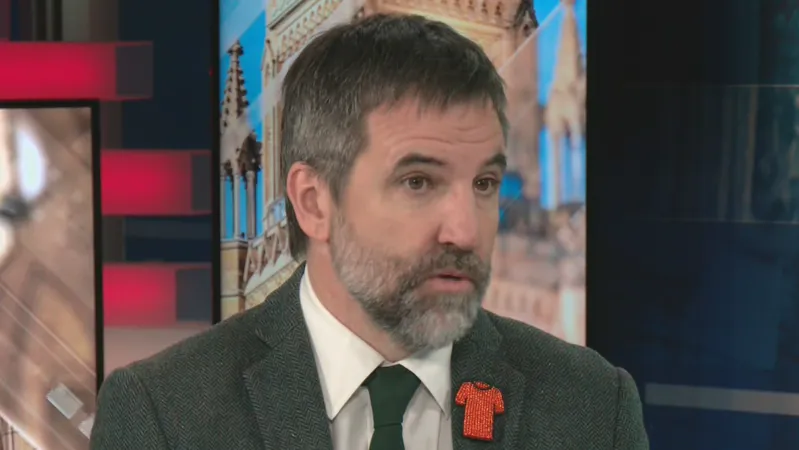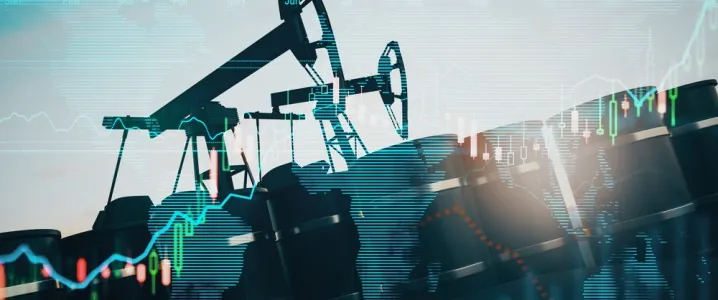
Canada’s Carbon Tax Increase Set to Go Ahead Despite Backlash: What You Need to Know!
2024-09-24
Author: Jacques
Canadian Government's Decision to Increase Carbon Tax
The Canadian federal government is moving forward with its planned increase to the carbon tax, with Environment Minister Steven Guilbeault firmly stating that there are “no intentions” to pause the upcoming price hike. This announcement comes amid controversial debates surrounding the tax, which has faced considerable opposition from various political factions and the general public alike.
Guilbeault's Defense of the Carbon Price
In a recent appearance on CTV’s *Power Play*, Guilbeault defended the necessity of the carbon price as an essential tool in the battle against climate change. He emphasized the urgency of action, stating, “2024 is already the costliest summer year so far in terms of environmental impacts due to climate change. So, we need to keep acting, because otherwise we'll never see the end of it.”
Current and Future Tax Rates
The current tax, which recently rose from $65 to $80 per tonne, already adds an extra 3.3 cents per liter at the pump for consumers. According to the government's trajectory, this price is slated to increase by an additional $15 each year, ultimately reaching $170 per tonne by 2030. This ambitious approach aligns with federal targets aimed at reducing greenhouse gas emissions significantly.
Opposition from the Conservative Party
The carbon tax has become a pivotal issue for the Conservative Party, which has leveraged it as a primary criticism against the Liberal government. Opposition Leader Pierre Poilievre is spearheading efforts to challenge the tax, declaring a need to “axe the tax,” and is pushing for a vote of non-confidence in the House of Commons aimed at returning carbon taxation to the forefront of Canadian elections.
Concerns from Regional Premiers
Significantly, regional premiers, including Liberal Premier Andrew Furey of Newfoundland and Labrador, have voiced their concerns about the tax. The growing dissent has even led NDP leader Jagmeet Singh to consider a shift in his party’s stance, suggesting a climate plan that would relieve workers from bearing the brunt of such financial policies, though he has stopped short of confirming whether this plan would still include a consumer carbon price.
Potential Changes Beyond 2030
Moreover, British Columbia’s NDP Premier, David Eby, hinted at potential changes if the federal government were to eliminate its carbon tax requirements, vowing to abolish the provincial carbon tax in that scenario as part of his election campaign.
Conclusion: The Future of the Carbon Tax
In responding to inquiries about future carbon tax increases post-2030, Guilbeault acknowledged there is a possibility such increases may not be necessary. “If we come to the conclusion that we don't need to keep increasing it and that emissions will continue to go down because of all the other things we're doing, then there's no reason to continue increasing it,” he affirmed.
With ongoing climate negotiations and rising tensions among political parties, the fate of the carbon tax could play a decisive role in shaping Canada’s environmental policies and political landscape in the years to come. As citizens brace for impending changes, one question looms large: Will the carbon tax truly bear the burden of reducing emissions, or will it become a political hot potato? Stay tuned as the situation develops!









 Brasil (PT)
Brasil (PT)
 Canada (EN)
Canada (EN)
 Chile (ES)
Chile (ES)
 Česko (CS)
Česko (CS)
 대한민국 (KO)
대한민국 (KO)
 España (ES)
España (ES)
 France (FR)
France (FR)
 Hong Kong (EN)
Hong Kong (EN)
 Italia (IT)
Italia (IT)
 日本 (JA)
日本 (JA)
 Magyarország (HU)
Magyarország (HU)
 Norge (NO)
Norge (NO)
 Polska (PL)
Polska (PL)
 Schweiz (DE)
Schweiz (DE)
 Singapore (EN)
Singapore (EN)
 Sverige (SV)
Sverige (SV)
 Suomi (FI)
Suomi (FI)
 Türkiye (TR)
Türkiye (TR)
 الإمارات العربية المتحدة (AR)
الإمارات العربية المتحدة (AR)